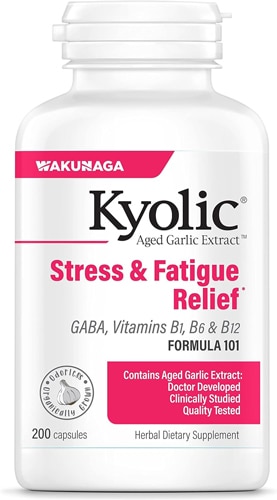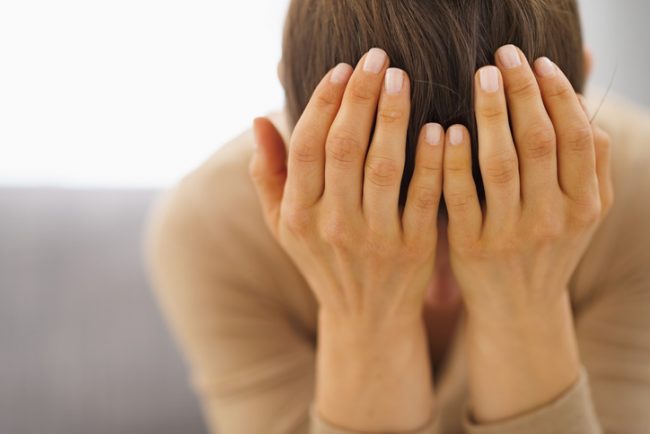For many, stress is a four-letter word—an inescapable part of life that can, at times, seem impossible to manage.
And while the prevailing definition of stress—coined by the “Father of Stress Management” Dr. Hans Selye—is any exertion on the mind and body (read: stress, in moderation, can be a good thing), most of us associate stress with appetite changes, sleepless nights, queasy stomachs, snippy moods and pounding headaches.
All of which can be very real—and very uncomfortable—symptoms of high and/or chronic stress. Indeed, negative stress can take a significant toll on your mental and physical health, wreaking havoc on everything from your skin to your sex life.
Why? When you experience stress, your body leaps into action. Your heart races, your pupils dilate, your blood pressure increases, and your adrenaline soars—hard-wired responses that once allowed our ancestors to flee lions, tigers and bears. In these relatively safe times, we’re no longer trying to outrun wild animals (at least most of us), but we are trying to meet deadlines, battle traffic, pay bills and keep our families healthy and happy.
At the same time, most of us are well-versed in the common side effects of stress, including insomnia, acne, migraines, appetite changes and heartburn. But, due to the impact it has on our entire system—from endocrine to reproductive—stress can also strike us in unexpected, even stealthy ways.
In honor of Stress Awareness Month (which has been held every April since 1992), here are five surprising ways stress affects your health—and five quick tips to reduce anxiety naturally:
1. Irregular/missed periods
Stress doesn’t just make us miss our exit ramp on the freeway: It can also do a number on your cycle. As Everyday Health reports, “stress plays a role in suppressing the functioning of the hypothalamus, which controls the pituitary gland — the body's master gland — which, in turn, controls the thyroid and adrenal glands and the ovaries; they all work together to manage hormones.” Disrupted, and you may experience irregular, missed or more painful periods.
Quick tip: Grab your gal pals for a raw vegan dinner, a shopping spree or a yoga class. A study published in Psychological Review demonstrates that women—who experience stress differently than men—release a hormone called oxytocin when under stress, which can engender a soothing effect. Spend time with other women, and you may release greater amounts of it. What’s more, estrogen seems to bolster oxytocin’s effects. In other words, Girls Night Out has never had more promise.
2. Hair loss
Ever find more strands than usual in your hairbrush when you’re under duress? (Just when you need more to worry about!)
You’re not alone: Called telogen effluvium—a temporary, stress-induced shedding—it is the second most common form of hair loss dermatologists see. The good news is that once stress diminishes, scalp hair follicles essentially “wake up”—and your hair can look lustrous again. In the meantime…
Quick tip: Adopt simple (but effective) stress management practices. Back up your computer files and smartphone, store a spare tire in your car, have an extra set of keys, stash away money in the bank and memorize (or stow in your wallet) your top emergency contact numbers. Knowing you have a back-up plan no matter the crisis can substantially reduce stress—and keep you from tearing out your hair.
3. Dental issues
From clenching your jaw to grinding your teeth, you know that your mouth feels the brunt of extreme stress (and not just in the sense of snapping at your partner, cat or child).
But did you know that stress has also been linked to gum disease? A 2012 study found that high levels of stress increased the risk of periodontal disease—a condition that includes infection, bone/tooth loss and inflamed and bleeding gums. "There's definitely a link between stress and dental health," says American General Dentistry spokesperson Nick Russo, DDS. "Stress affects the immune system, which fights against the bacteria that causes periodontal disease, making a person more prone to gum infection."
Quick tip: Bring humor into your life. Australian Family Physician reports that laughter reduces stress hormone levels. It also improves mood, enhances creativity, reduces pain and boosts immunity. Download routines by your favorite stand-up comedians, watch a funny movie, peruse jokes in The New Yorker or call your wittiest friend. Your brain and body will thank you—and you’ll be too busy giggling to grind your teeth.
4. Nosebleeds
For many, nosebleeds are rare occurrences. Experience one, and it may be a major sign that you’re under more stress than you realize.
Thank elevated blood pressure for the incident: the spike can cause pressure on the fragile, tiny arteries in your nasal cavity, thus leading to an emergency run for Kleenex.
Quick tip: Eat several small meals throughout the day and reduce your caffeine intake. “Stress eating” seldom involves snacking on carrots and hummus; rather, the more stressed we are, the more likely we are to reach for sugar, fats and processed foods. But vitamin-rich eats—grilled salmon, steamed vegetables, fresh fruit, nuts and seeds—will provide you with the fuel you need to work through the sources of your stress.
Additionally, eating several small meals throughout the day will keep hunger at bay (and hunger alone puts stress on your body). Cut back on caffeine as well. It may make you feel like you’re better able to cope with stress, but it’ll actually only rev you up more—and may lead to more tossing and turning in bed.
5. Social isolation
Excess stress may spur you to withdraw from friends, family and colleagues, if for nothing else than you can’t handle one, more, thing—and, of course, the misguided belief that being alone will reduce your anxiety.
But the more you isolate yourself from others, the worse your anxiety may get—in large part because connection fosters health, well-being and the confidence you may need to process the worries you’re experiencing. (We are, after all, very social creatures.)
Further, Psychology Today reports that social isolation increases “vulnerability to mental illness,” may serve as a “huge risk factor for the onset of major depression” and heightens susceptibility to various forms of addiction. Even without the science, you probably know how much better you feel after venting to a friend. Tap into that when you’re stressed—and feel your anxiety wash away.
Quick tip: Exercise! The International Journal of Sports Medicine affirms what we intuit: That exercise can improve immunity and decrease stress hormone levels. Begin an exercise program that gets your heart pumping, brings you joy and allows your mind to chill. Better yet? Bring a friend.




